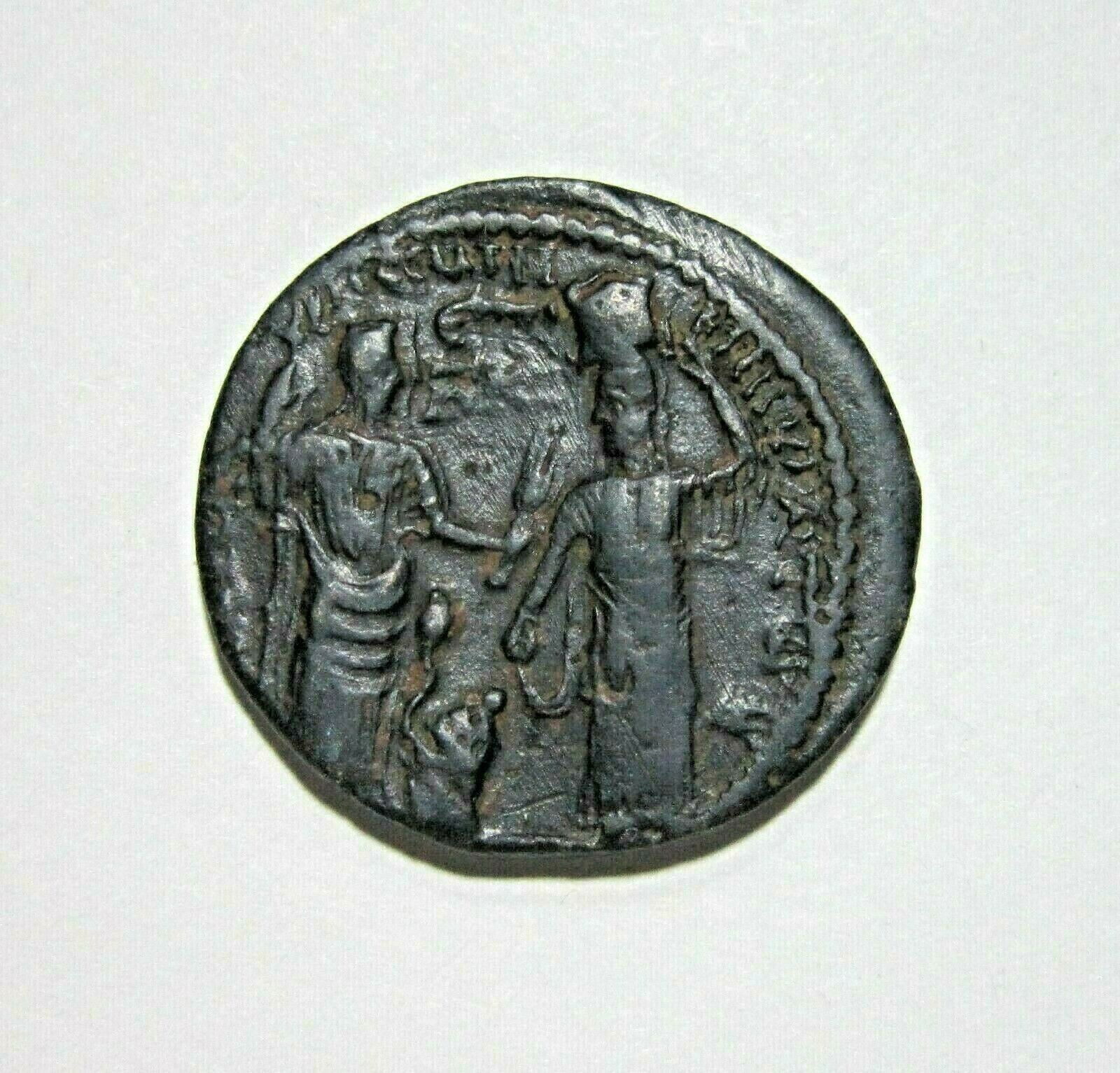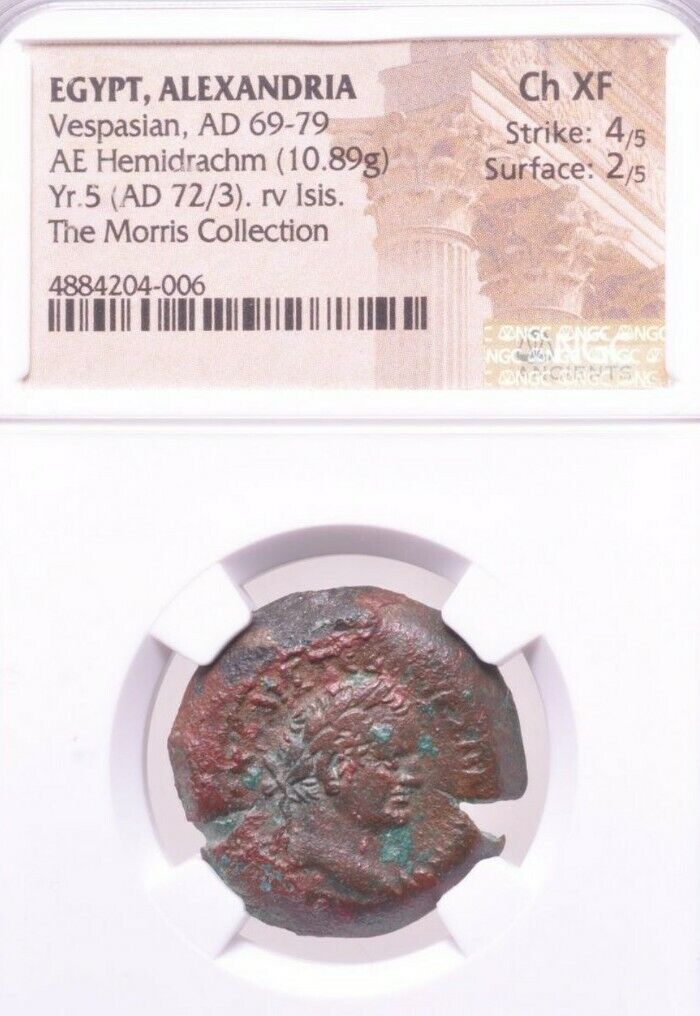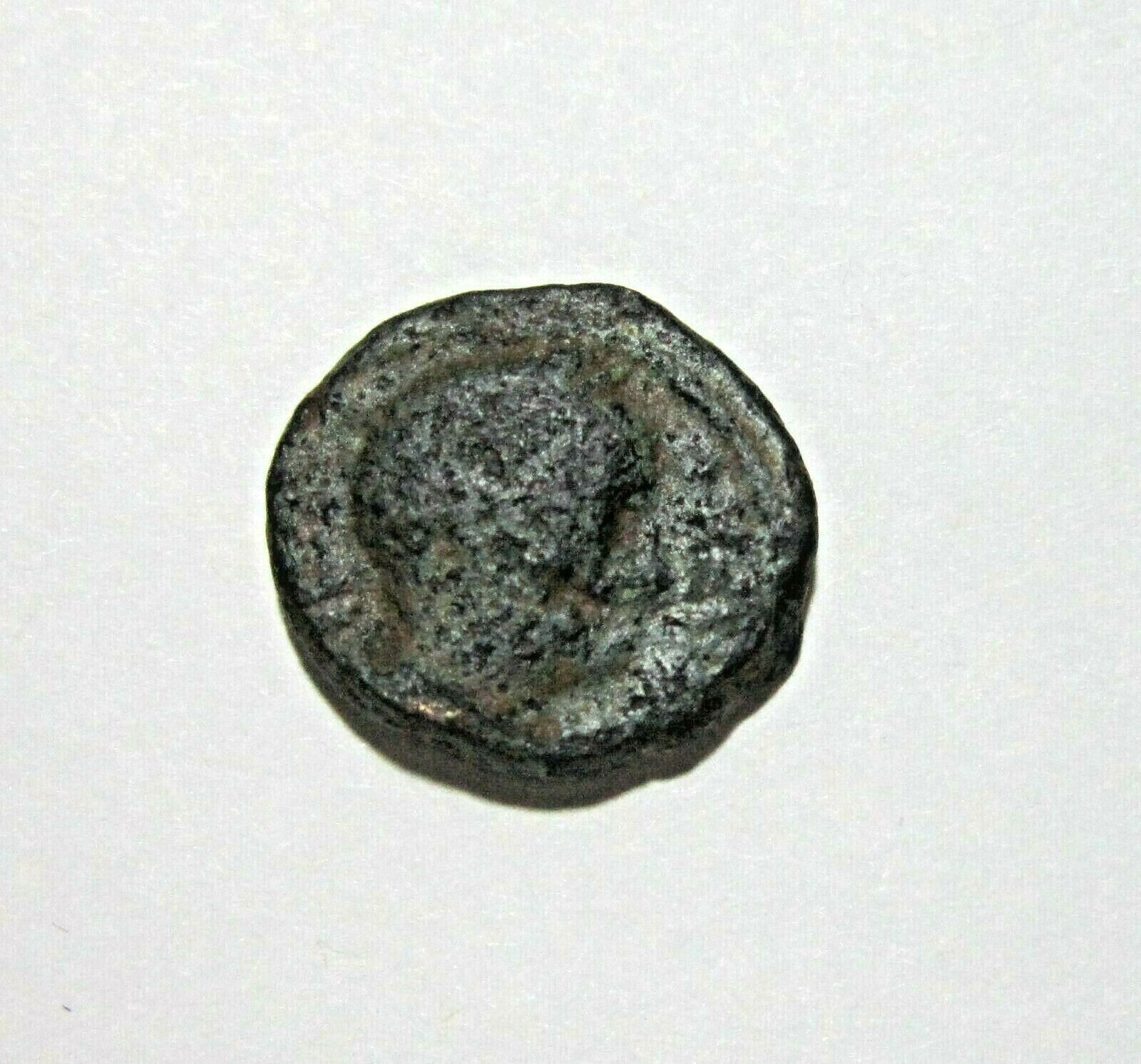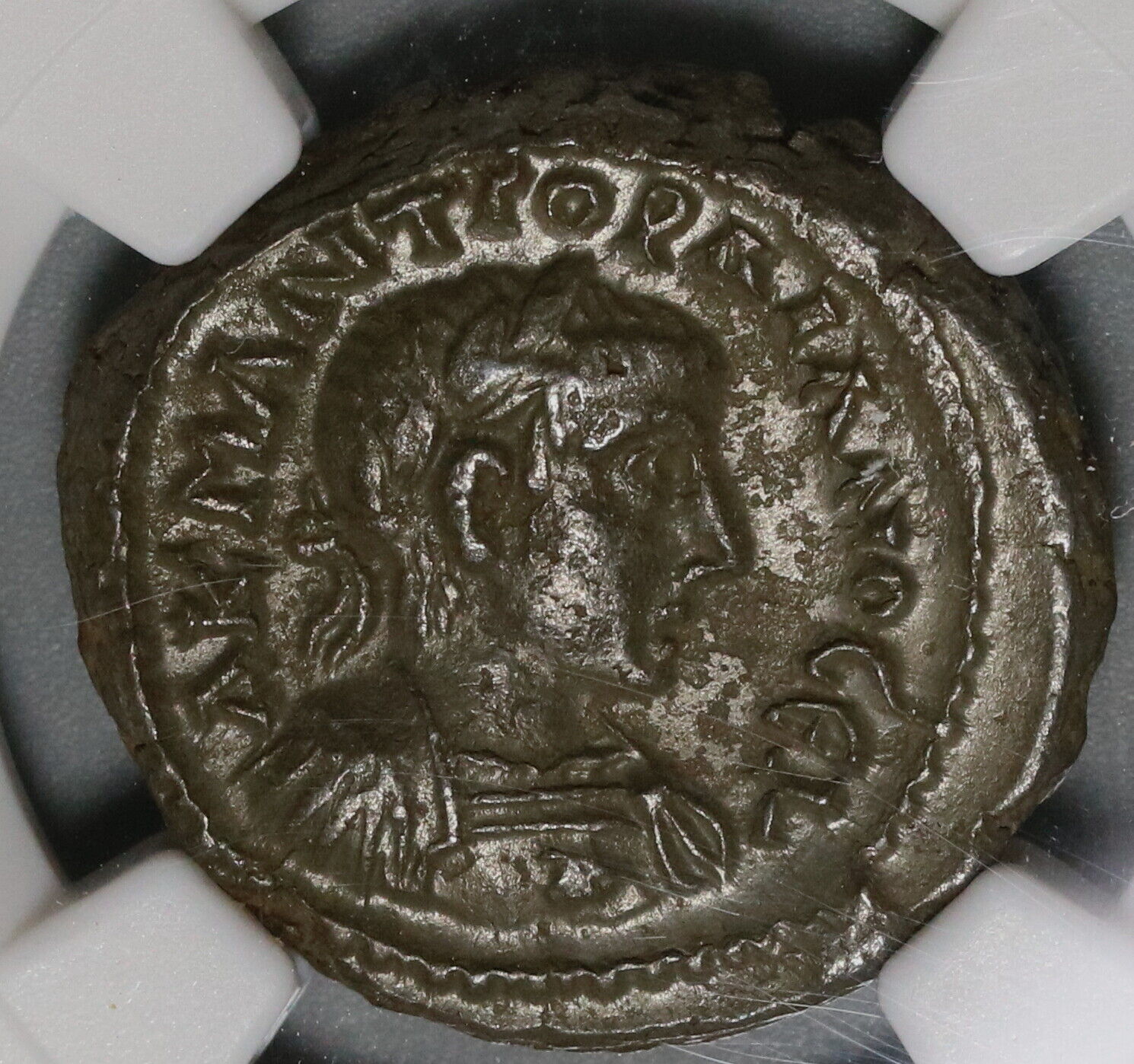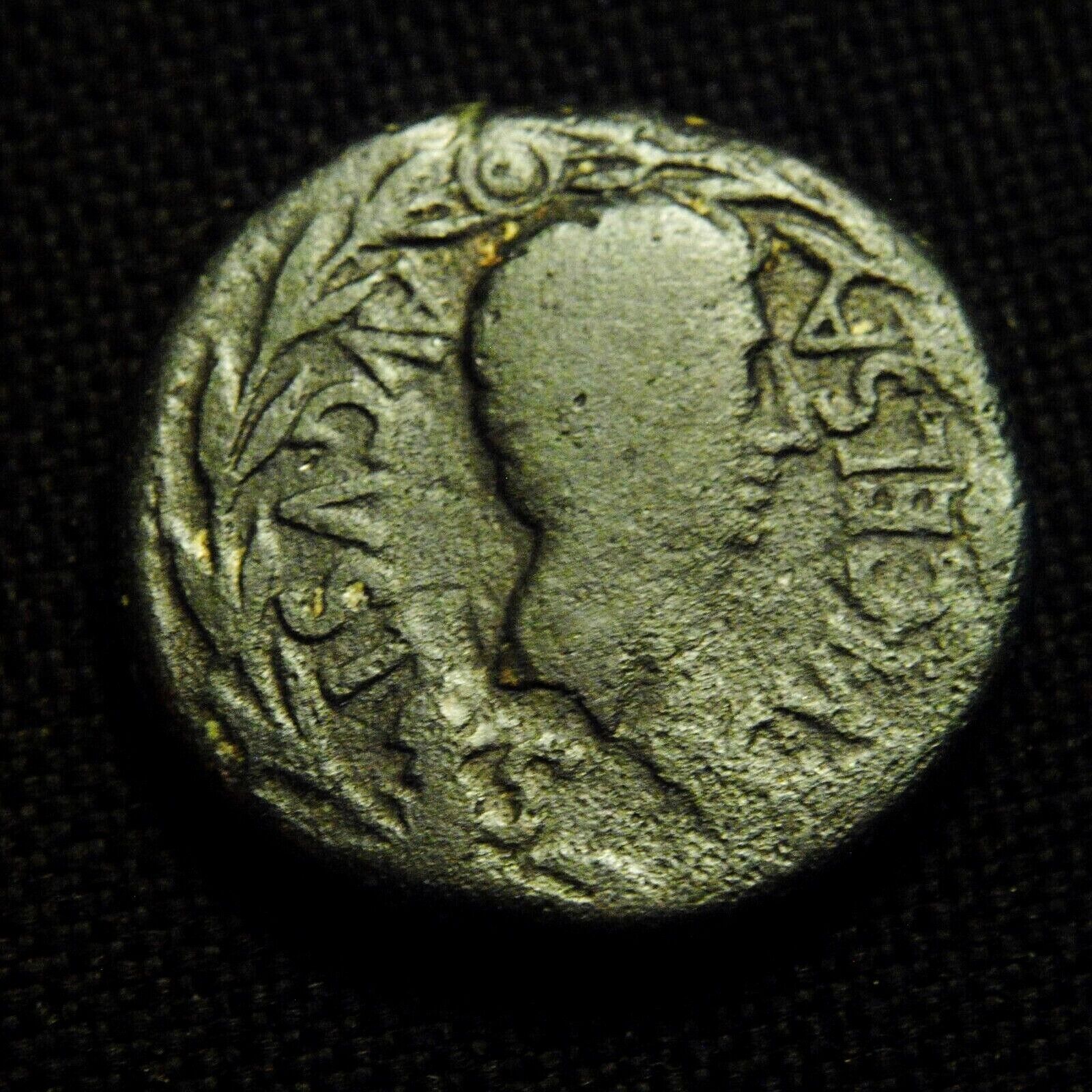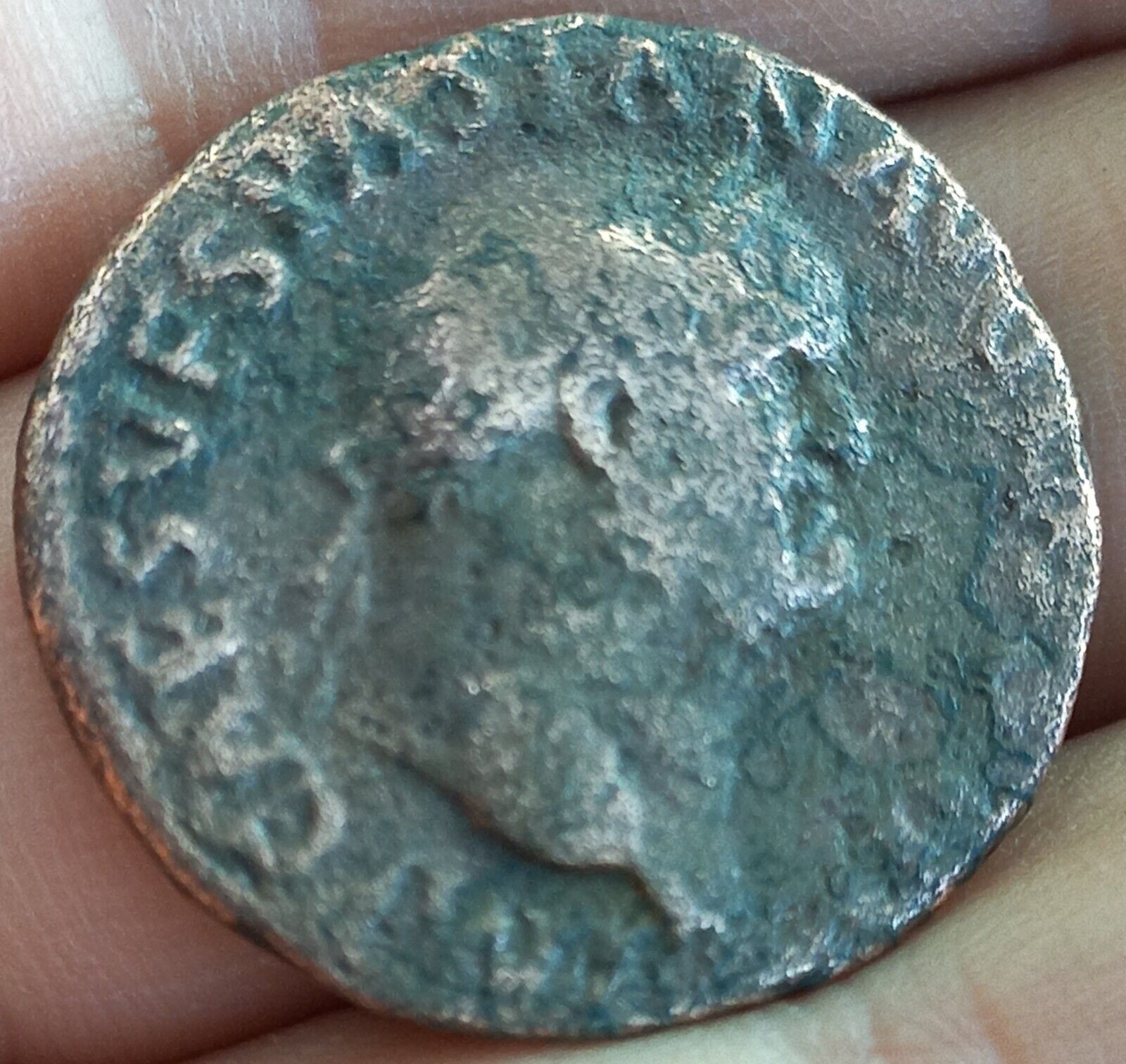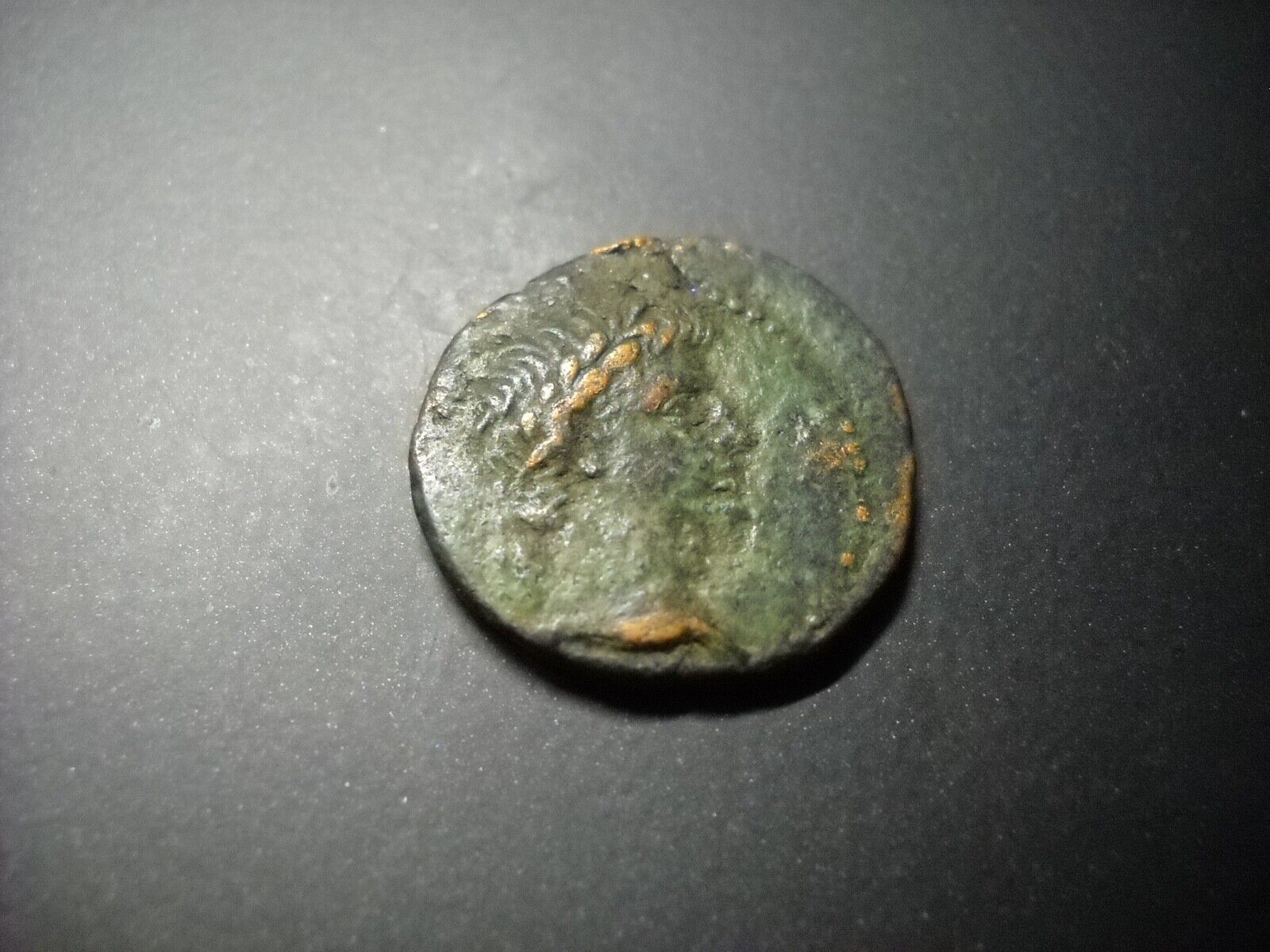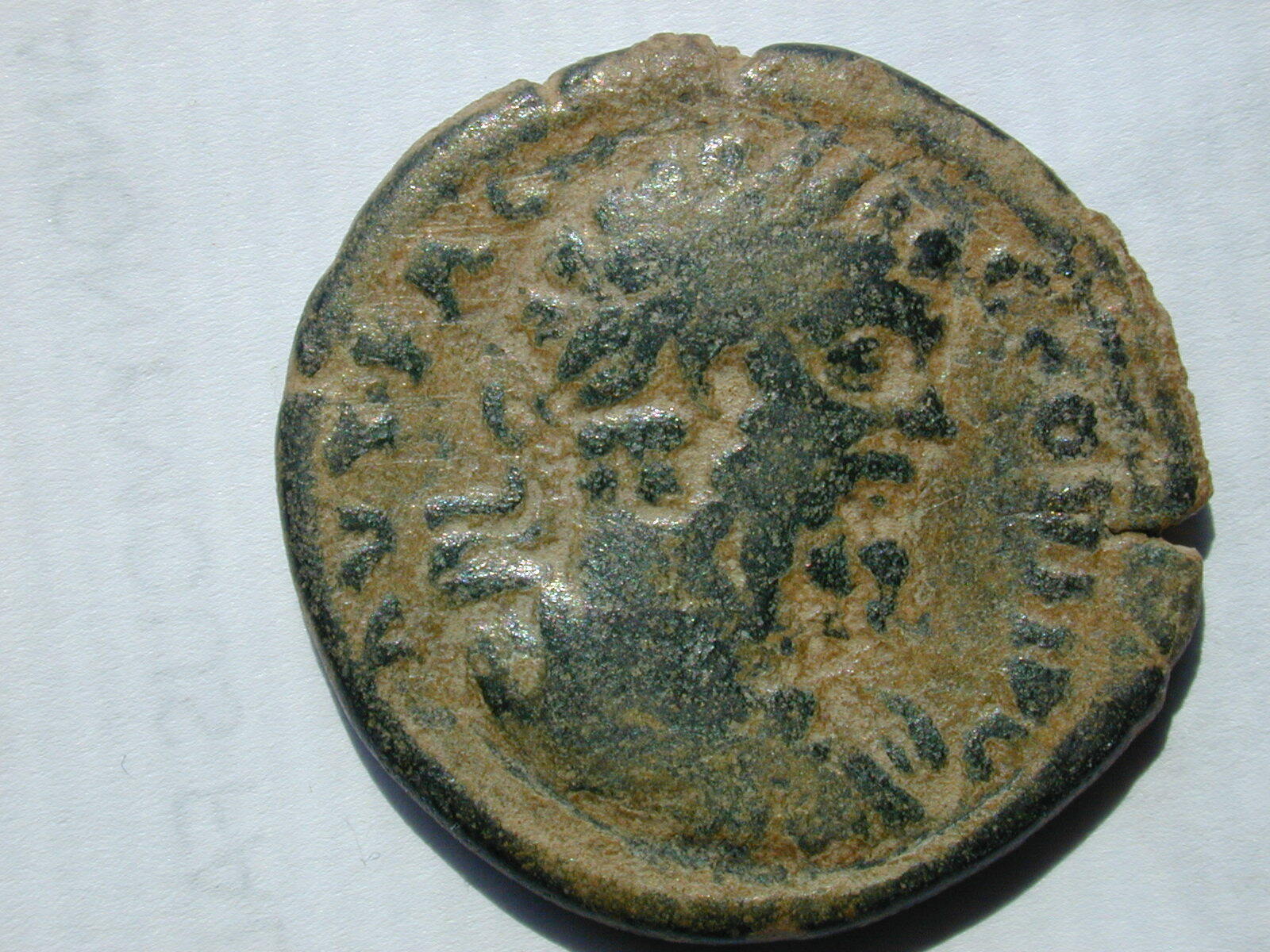-40%
SEVERUS ALEXANDER 226AD Alexandria in Egypt Eagle Tetradrachm Roman Coin i43611
$ 47.94
- Description
- Size Guide
Description
Item:i43611
Authentic Ancient Coin of:
Severus Alexander
-
Roman Emperor
: 222-235 A.D.
Billon Tetradrachm 22mm (12.54 grams) of
Alexandria
in
Egypt
Struck Year 6 of Reign: 226/227 A.D.
Reference: Dattari 4410; Geissen 2438; Emmett 3099
A KAI MA AYP C
ЄY AΛЄΞΑΝΔΡΟC ΕΥ, Laureate draped bust right.
Eagle standing left, head right with wreath in beak; regnal date L S in left and right fields.
You are bidding on the exact item pictured, provided with a Certificate of Authenticity and Lifetime Guarantee of Authenticity.
Alexandria was founded by
Alexander the Great
in April 331 BC as
Ἀλεξάνδρεια
(
Alexándreia
). Alexander's
chief architect
for the project was
Dinocrates
. Alexandria was intended to supersede
Naucratis
as a
Hellenistic
center in Egypt, and to be the link between Greece and the rich
Nile Valley
. An Egyptian city,
Rhakotis
, already existed on the shore, and later gave its name to Alexandria in the
Egyptian language
(Egyptian
*Raˁ-Ḳāṭit
, written
rˁ-ḳṭy.t
, 'That which is built up'). It continued to exist as the Egyptian quarter of the city. A few months after the foundation, Alexander left Egypt and never returned to his city. After Alexander's departure, his viceroy,
Cleomenes
, continued the expansion. Following a struggle with the other successors of Alexander, his general
Ptolemy
succeeded in bringing Alexander's body to Alexandria.
Alexandria, sphinx made of
pink granite
,
Ptolemaic
.
Although Cleomenes was mainly in charge of overseeing Alexandria's continuous development, the
Heptastadion
and the mainland quarters seem to have been primarily Ptolemaic work. Inheriting the trade of ruined
Tyre
and becoming the centre of the new commerce between Europe and the
Arabian
and Indian East, the city grew in less than a generation to be larger than
Carthage
. In a century, Alexandria had become the largest city in the world and, for some centuries more, was second only to Rome. It became Egypt's main Greek city, with
Greek people
from diverse backgrounds.
Alexandria was not only a centre of
Hellenism
, but was also home to the largest Jewish community in the world. The
Septuagint
, a Greek translation of the
Library of Alexandria
Hebrew Bible
), but were careful to maintain the distinction of its population's three largest ethnicities: Greek, Jewish, and
Egyptian
. From this division arose much of the later turbulence, which began to manifest itself under
Ptolemy Philopater
who reigned from 221–204 BC. The reign of
Ptolemy VIII Physcon
from 144–116 BC was marked by purges and civil warfare.
The city passed formally under Roman jurisdiction in 80 BC, according to the will of
Ptolemy Alexander
, but only after it had been under Roman influence for more than a hundred years. It was captured by
Julius Caesar
in 47 BC during a Roman intervention in the domestic civil war between king
Ptolemy XIII
and his advisers, and the fabled queen
Cleopatra VII
. It was finally captured by
Octavian
, future
emperor
Augustus on 1 August 30 BC, with the name of the month later being changed to
August
to commemorate his victory.
In AD 115, large parts of Alexandria were destroyed during the
Kitos War
, which gave
Hadrian
and his architect,
Decriannus
, an opportunity to rebuild it. In 215, the
emperor
Caracalla
visited the city and, because of some insulting
satires
that the inhabitants had directed at him, abruptly commanded his troops to
put to death
all youths capable of bearing arms. On 21 July 365, Alexandria was devastated by a
tsunami
(
365 Crete earthquake
), an event still annually commemorated 17 hundred years later as a "day of horror." In the late 4th century, persecution of
pagans
by newly Christian Romans had reached new levels of intensity. In 391, the Patriarch
Theophilus
destroyed all pagan temples in Alexandria under orders from Emperor
Theodosius I
. The
Brucheum
and Jewish quarters were desolate in the 5th century. On the mainland, life seemed to have centred in the vicinity of the
Serapeum
and
Caesareum
, both of which became
Christian churches
. The
Pharos
and
Heptastadium
quarters, however, remained populous and were left intact.
In 619, Alexandria
fell
to the
Sassanid Persians
. Although the
Byzantine Emperor
Heraclius
recovered it in 629, in 641 the Arabs under the general
Amr ibn al-As
captured it during the
Muslim conquest of Egypt
, after a siege that lasted 14 months.
SEVERUS ALEXANDER
Augustus:
A.D. 222-235
Caesar:
A.D. 221-222 under Elagabalus
Son of Julia Mamaea
Husband of Orbiana
Grandson of Julia Maesa
Nephew of Julia Soaemias
Cousin of Elagabalus
Second-cousin of Caracalla and Geta
Great-newphew of Septimius Severus and Julia Domna
Marcus Aurelius Severus Alexander
(October 1, 208–March 18, 235 AD), commonly called
Alexander Severus
, was the last
Roman emperor
(11 March 222–235) of the
Severan dynasty
. Alexander Severus succeeded his cousin,
Elagabalus
upon the latter's assassination in 222 AD, and was ultimately assassinated himself, marking the
epoch event
for the
Crisis of the Third Century
—nearly fifty years of disorder, Roman civil wars, economic chaos, regional rebellions, and external threats that brought the Empire to near-collapse.
Alexander Severus was the
heir apparent
to his cousin, the eighteen-year-old Emperor who had been murdered along with his mother by his own guards—and as a mark of contempt, had their remains cast into the
Tiber river
. He and his cousin were both grandsons of the influential and powerful
Julia Maesa
, who had arranged for Elagabalus' acclamation as Emperor by the famed
Third Gallic Legion
.
A rumor of Alexander's death circulated, triggering the assassination of Elagabalus.
Alexander's reign was marked by troubles. In military conflict against the rising
Sassanid Empire
, there are mixed accounts, though the Sassanid threat was checked. However, when campaigning against
Germanic tribes
of
Germania
, Alexander Severus apparently alienated his legions by trying diplomacy and bribery, and they assassinated him.
Life
Alexander was born with the name
Marcus Julius Gessius Bassianus Alexianus
. Alexander's father,
Marcus Julius Gessius Marcianus
was a Syrian
Promagistrate
. His mother
Julia Avita Mamaea
was the second daughter of
Julia Maesa
and Syrian noble
Julius Avitus
and maternal aunt of Emperor
Elagabalus
. He had an elder sister called Theoclia and little is known about her. Alexander's maternal great-aunt was empress
Julia Domna
(also Maesa's younger sister) and his great-uncle in marriage was emperor Lucius
Septimius Severus
. Emperors
Caracalla
and
Publius Septimius Geta
, were his mother's maternal cousins. In 221, Alexander's grandmother, Maesa, persuaded the emperor to adopt his cousin as successor and make him
Caesar
and Bassianus changed his name to Alexander. In the following year, on March 11, Elagabalus was murdered, and Alexander was proclaimed emperor by the
Praetorians
and accepted by the Senate.
When Alexander became emperor, he was young, amiable, well-meaning, and entirely under the dominion of his mother. Julia Mamaea was a woman of many virtues, and she surrounded the young emperor with wise counsellors. She watched over the development of her son's character and improved the tone of the administration. On the other hand, she was inordinately jealous. She also alienated the army by extreme parsimony, and neither she nor her son were strong enough to impose military discipline. Mutinies became frequent in all parts of the empire; to one of them the life of the jurist and praetorian praefect
Ulpian
was sacrificed; another compelled the retirement of
Cassius Dio
from his command.
On the whole, however, the reign of Alexander was prosperous until the rise, in the east, of the
Sassanids
. Of the war that followed there are various accounts. (
Mommsen
leans to that which is least favourable to the Romans). According to Alexander's own dispatch to the senate, he gained great victories. At all events, though the Sassanids were checked for the time, the conduct of the Roman army showed an extraordinary lack of discipline. The emperor returned to
Rome
and celebrated a triumph in 233.
The following year he was called to face German invaders in
Gaul
, who had breached the Rhine frontier in several places, destroying forts and over-running the countryside. Alexander mustered his forces, bringing legions from the eastern provinces, and crossed the Rhine into Germany on a pontoon bridge. Initially he attempted to buy the German tribes off, so as to gain time. Whether this was a wise policy or not, it caused the Roman legionaries to look down on their emperor as one who was prepared to commit unsoldierly conduct.
Herodian
says "in their opinion Alexander showed no honourable intention to pursue the war and preferred a life of ease, when he should have marched out to punish the Germans for their previous insolence". These circumstances drove the army to look for a new leader. They chose
Gaius Iulius Verus Maximinus
, a Thracian soldier who had worked his way up through the ranks.
Following the nomination of Maximinus as emperor, Alexander was slain (on either March 18 or March 19, 235), together with his mother, in a mutiny of the
Primigenia
Legio XXII
. These assassinations secured the throne for Maximinus.
The death of Alexander is considered as the end of the
Principate
system established by
Augustus
. Although the
Principate
continued in theory until the reign of
Diocletian
, Alexander Severus' death signalled the beginning of the chaotic period known as the
Crisis of the Third Century
which weakened the empire considerably.
Legacy
Alexander was the last of the Syrian emperors. Under the influence of his mother, he did much to improve the morals and condition of the people. His advisers were men like the famous jurist Ulpian, the historian Cassius Dio and a select board of sixteen senators; a municipal council of fourteen assisted the urban praefect in administering the affairs of the fourteen districts of Rome. The luxury and extravagance that had formerly been so prevalent at the court were put down; the standard of the coinage was raised; taxes were lightened; literature, art and science were encouraged; the lot of the soldiers was improved; and, for the convenience of the people, loan offices were instituted for lending money at a moderate rate of interest.
In religious matters Alexander preserved an open mind. It is said that he was desirous of erecting a temple to the
founder of Christianity
, but was dissuaded by the pagan priests.
Marriage
Alexander was married three times. His most famous wife was
Sallustia Orbiana
,
Augusta
,
whom he married in 225. He divorced and exiled her in 227, after her father,
Seius Sallustius
, was executed for attempting to assassinate the emperor. Another wife was Sulpicia Memmia. Her father was a man of consular rank; her grandfather's name was
Catulus
.
Frequently Asked Questions
How long until my order is shipped?
Depending on the volume of sales, it may take up to 5 business days for shipment of your order after the receipt of payment.
How will I know when the order was shipped?
After your order has shipped, you will be left positive feedback, and that date should be used as a basis of estimating an arrival date.
After you shipped the order, how long will the mail take?
USPS First Class mail takes about 3-5 business days to arrive in the U.S., international shipping times cannot be estimated as they vary from country to country. I am not responsible for any USPS delivery delays, especially for an international package.
What is a certificate of authenticity and what guarantees do you give that the item is authentic?
Each of the items sold here, is provided with a Certificate of Authenticity, and a Lifetime Guarantee of Authenticity, issued by a world-renowned numismatic and antique expert that has identified over 10000 ancient coins and has provided them with the same guarantee. You will be quite happy with what you get with the COA; a professional presentation of the coin, with all of the relevant information and a picture of the coin you saw in the listing.
Compared to other certification companies, the certificate of authenticity is a -50 value. So buy a coin today and own a piece of history, guaranteed.
Is there a money back guarantee?
I offer a 30 day unconditional money back guarantee. I stand behind my coins and would be willing to exchange your order for either store credit towards other coins, or refund, minus shipping expenses, within 30 days from the receipt of your order. My goal is to have the returning customers for a lifetime, and I am so sure in my coins, their authenticity, numismatic value and beauty, I can offer such a guarantee.
Is there a number I can call you with questions about my order?
You can contact me directly via ask seller a question and request my telephone number, or go to my About Me Page to get my contact information only in regards to items purchased on eBay.
When should I leave feedback?
Once you receive your order, please leave a positive. Please don't leave any negative feedbacks, as it happens many times that people rush to leave feedback before letting sufficient time for the order to arrive. Also, if you sent an email, make sure to check for my reply in your messages before claiming that you didn't receive a response. The matter of fact is that any issues can be resolved, as reputation is most important to me. My goal is to provide superior products and quality of service.


